2017년 2월 21일, 미국의 신고전파 경제학자 케네스 애로 (Kenneth Joseph “Ken” Arrow, 1921 ~ 2017) 별세
케네스 조셉 “켄” 애로 (Kenneth Joseph “Ken” Arrow, 1921년 8월 23일 ~ 2017년 2월 21일)는 미국의 경제학자, 작가, 정치이론가이다. 그는 1972년에 존 힉스와 함께 노벨 경제학상을 수상하였다. 수상할 시 그의 나이는 51세였다.
경제학에서, 그는 제2차 세계 대전 이후에 나타난 신고전파 경제학자이다. 그의 학생 중 많은 사람들도 노벨 경제학상을 수상하였다. 그의 가장 중요한 업적은 “애로의 불가능성 정리”와 같이 사회선택이론에 관하여 연구한 것과 일반균형이론에 관하여 연구한 것이 있다. 그는 내생적 성장이론이나 정보 비대칭 이론에도 큰 기여를 하였다.
주요저서로《사회적 선택과 개인적 평가》(1951), Essays in the Theory of Risk-Bearing》(1971), 《The Limits of Organization》(1973) 등이 있다.
그 밖에 M.E.발라의 일반균형체계에서의 균형해 (均衡解)의 존재와 그 안정성의 해명, 대체 (代替)의 탄력성이 일정한 생산함수 (生産函數)의 연구, 경제성장에 관한 이론적 고찰, 가격의 조정기구의 고찰, 불확실성이나, 위험부담에 관한 이론 등 수학적 방법을 구사한 다수의 뛰어난 업적이 있다.
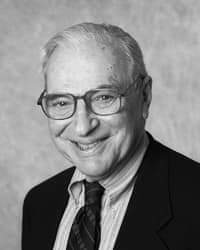
○ 생애 및 활동
- 교육과 초기경력
애로는 1921년 8월 23일에 뉴욕시에서 태어났다.
애로의 어머니 릴리언과 아버지 해리는 모두 루마니아 출신이며, 애로의 집안은 루마니아 유대교 집안이다.
그의 가족은 애로의 교육에 대하여 적극적인 지원을 해주었다.
대공황에서 자란 애로는 그가 젊었을 때 사회주의를 받아 들였으며, 이후 그는 사회주의적 견해를 포기했지만 좌파적인 성향을 유지했다.
그는 타운센드 해리스 고등학교를 졸업한 뒤 1936년 뉴욕시립대학교에 입학하여 1940년에 수학전공으로 학사과정을 수료하였다.
그는 대학원 과정으로 컬럼비아 대학교를 다녔으며, 그는 거기서 해럴드 호텔링 아래에서 공부하고 또 그에게 큰 영향을 받았다.
그는 1941에 석사과정을 수료하였다.
이후 1942년에서 1946년까지 그는 미국 육군 항공단에서 기상장교로 복무하였다.
1946에서 1949년까지 그는 컬럼비아 대학교에서 대학원생으로 있으면서 시카고 대학교의 코올스 경제학연구위원회의 연구원으로도 있었다.
이 시기에 그는 시카고 대학교에서 경제학 조교수로도 있었다. 그는 1951년에 컬럼비아 대학교에서 박사과정을 수료하였다.
애로는 경제학자 로런스 서머스의 삼촌이기도 하며, 폴 새뮤얼슨의 처남이기도 하다.
애로는 1947년에 셀마 슈바이처를 결혼했으며, 두 명의 자식이 있으며, 두 명 모두 배우이다.
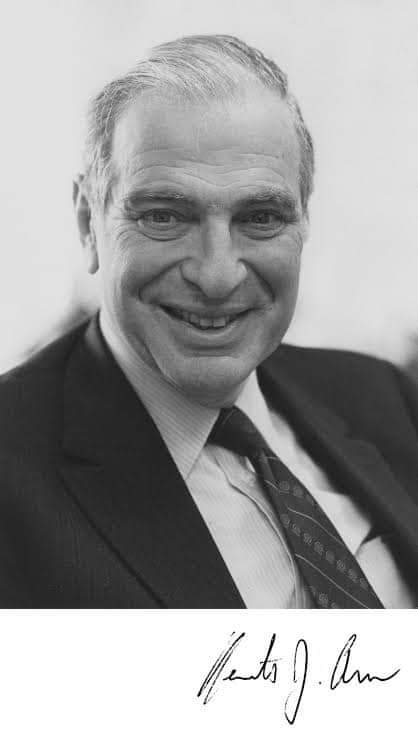
- 학문적 생애
그는 스탠포드 대학교에서 경제학 명예교수와 오퍼레이션 리서치 명예교수로 재직했다.
그는 교황청 사회학술원의 창립회원이며, 산타페 연구소의 회원이었다.
애로는 평화와 안전을 위한 경제학자들의 이사였다.
또한 그는 기후 변화에 관한 정부간 패널의 주 저자였으며, 경제학 연간 평론의 편집장이었다.
그의 학생중 5명이 노벨 경제학상 수상자이다.
여기에는 에릭 매스킨, 존 하사니, 로저 마이어슨, 마이클 스펜스 등이 있다.
애로의 에르되시 수는 3이다.
- 기타
부모님 두 분이 다 루마니아에서 이민 온 유대인이다.
그의 제자들 중 다섯 명 (에릭 마스킨, 존 하사니, 마이클 스펜스, 로저 마이어슨, 아마르티아 센)이나 노벨 경제학상을 받게 되었는데, 후학 양성에도 힘을 썼다는 것을 볼 수 있는 부분이다.
또한 그의 가족관계도 엄청난데, 자신의 여동생 아니타 애로우와 남편 로버트 서머스는 펜실베이니아 대학교에서 교수직을 역임한 경제학자이며, 이 부부의 아들이자 애로우의 외조카는 하버드 대학교 총장과 미국 재무장관을 역임한 경제학자 로렌스 서머스이다. 또한 로렌스 서머스의 큰아버지는 폴 사무엘슨이다.
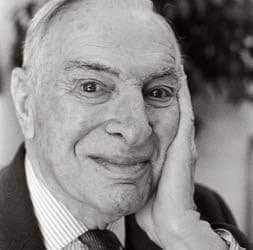
- 학력
1931 ~ 1936 : 타운센드 해리스 고등학교 졸업
1936 ~ 1940 : 뉴욕시립대학교 수학과 학사
1940 ~ 1941 : 컬럼비아 대학교 경제학 석사
~ 1951 : 컬럼비아 대학교 경제학 박사
애로는 1959년 미국 예술 과학 아카데미의 선임 연구원으로 선출되었다.
- 수상
그는 1972년 존 힉스와 함께 노벨 경제학상을 수상하였다.
또한 그는 리스크와 불완전한 정보에 관한 연구로 2004년에 미국에서 가장 높은 과학상인 국가과학상을 수상하였다.
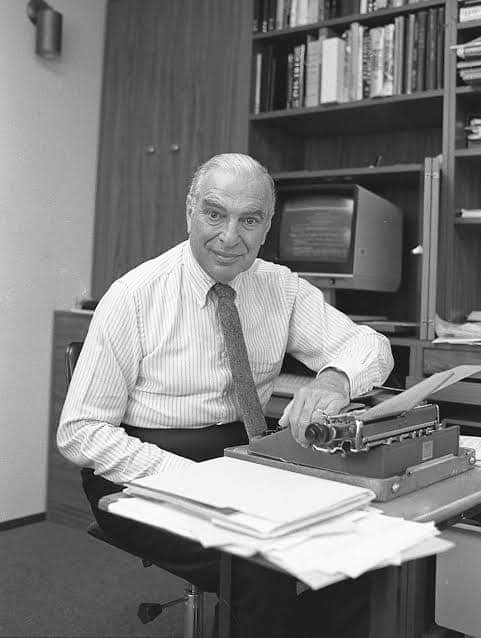
○ 업적
- 애로의 불가능성 정리
사회 선택 이론에서 애로의 불가능성 정리 [Arrow’s impossibility theorem, 일반 가능성 정리 (General Possibility Theorem) 또는 애로의 역설 (Arrow’s paradox)]는 투표자들에게 세 개 이상의 서로 다른 대안이 제시될 때, 어떤 투표 제도도 공동체의 일관된 선호순위 (ranked preferences) 를 찾을 수 없다는 것, 즉 애로 정리에서 제시된 몇 가지 기준을 충족하면서, 선호의 ‘완전성’ (completeness)과 ‘이행성’ (transitiveness)을 만족시킬 수 있는 사회 후생 함수 (social welfare function)를 찾을 수 없다는 것을 의미한다. 이론 경제학자인 케네스 애로의 이름을 따서 정리의 이름이 붙여졌다. 그는 그의 박사논문 ‘A Difficulty in the Concept of Social Welfare’에서 이 정리를 설명했고 1951년 그의 책 ‘Social Choice and Individual Values’ 덕분에 널리 알려졌다. 1972년 애로는 경제 ‘일반 균형 모델'(general equilibrium theory)과 ‘사회적 후생론’ (welfare theory)을 개척한 공로를 인정받아 그 해 노벨 경제학상의 공동 수상자로 선정됐다.
애로는 ‘정의 영역 배제 불가능’ (unrestricted domain, 보편성 원칙), ‘비 독재’ (non-dictatorship, 투표권의 동등한 영향력), ‘만장일치 (파레토 원칙)’, ‘무관한 선택대상으로부터의 독립’ (independence of irrelevant alternatives, IIA)을 투표 제도가 만족해야 될 조건으로 제시했다. ‘기바드-새터스웨이트 정리’ (Gibbard–Satterthwaite theorem)는 이를 확장해 선거가 갖는 함의를 해석하였다.
간단히 설명하면, 불가능성 정리는 어떤 투표 제도를 선택해도 다음과 같은 세 가지 “공정성” 기준을 만족시킬 수 없다는 것을 증명한다.
.만약 모든 유권자들이 가안에 비해 나안을 선호한다면, 이 공동체는 가보다 나안을 선호한다.
.만약 가와 나안에 대한 모든 유권자의 선호도가 변하지 않는다면, 가와 나안에 대한 공동체의 선호도 변하지 않는다 (단, 가와 다, 나와 다, 다와 라안에 대한 개인 선호도는 바뀔 수 있다).
.투표를 좌지우지하는 독재자는 존재하지 않는다: 모든 유권자는 공동체 결정에 동일한 비중의 투표권을 갖는다.
.만약 각각의 대안에 임의의 선호 값을 부여한다면 (기수 <基數>적 효용), 불가능성 정리를 우회하는 공동체 결정이 가능하다. 하지만 애로는, 다른 많은 경제학자들과 같이, 기수적 효용 (cardinal utility)이 사회 후생을 평가하는 의미있는 도구라고 생각하지 않았고, 따라서 선호순위를 바탕으로 불가능성 정리를 도출했다.
선호를 바탕으로 한 애로의 공리 (公理, axiom)적 접근법은, 하나의 통일된 틀안에서 거의 모든 사회 제도를 분석할 수 있는 도구를 제시한다. 이런 점에서, 애로의 공리적 접근은 개별 제도를 하나씩 다루는 그 이전의 ‘투표 이론’에서 (질적으로) 한단계 발전한 방법이라고 볼수 있다. 따라서, 일부 학자들은 사회 선택 이론의 새로운 패러다임이 애로의 정리에서 시작됐다고 평가한다.
- 일반균형이론
애로는 제라르 드브뢰와 함께, 제한된 조건 하에서는 시장에 있는 모든 상품에 대하여 총공급이 총수요와 같은 가격의 집합이 언제나 있음을 엄밀하게 증명해낸 애로-드브뢰 모형을 만들었다. 이 업적으로 드브뢰는 1983년에 노벨 경제학상을 수상하였다. 애로는 후에 이 모델을 확장하여 불확실성과 안정성을 포함하여 분석하였다. 일반균형이론에서의 그의 업적은 아담 스미스의 국부론에 많은 영향을 받았다.
- 후생경제학의 기본 정리
애로는 후생경제학의 기본 정리의 제1정리와 제2정리를 효용, 소비, 혹은 기술의 미분가능성을 필요로 하지 않고 증명할 수 있음을 보였다.
- 내생적 성장이론
애로는 내생적 성장이론에 대하여도 연구하고 있었다. 이는 기술변화를 외생적 변수라 보지 않고, 기술변화의 원인이 무엇인지 탐구하려고 하는 이론이다. 내생적 성장이론이 발전하기 전에는 기술변화를 외생변수라 고려하는 것이 일반적이었다. 하지만 이와 동시에 기술변화가 일어나는 원인에 대하여는 경제적 설명이 부족하였다. 내생적 성장이론은 왜 기업들이 혁신하는지 경제적인 이유를 제공하였고, 이에 다라 경제학자들이 기술변화가 경제주체의 행위에 따라 결정되므로, 즉 내생적으로 결정되므로 기술변화가 경제 모델 안에 들어가야한다고 생각하게 하였다. 애로는 이러한 이론에 기초가 되는 연구를 하였다.
- 정보경제학
애로는 정보의 비대칭성에 다른 문제 역시 연구하였다. 애로는 의료 급여에서의 정보의 비대칭성에 관하여 연구하였고, 그는 1963년에 “Uncertainty and the Welfare Economics of Medical Care” 라는 제목의 논문으로 자신의 업적을 출판하였다.
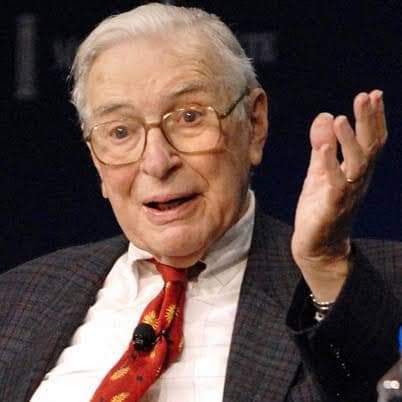
○ 저서
주요 저서로 《사회적 선택과 개인적 평가 : Social Choice and Individual Values》(1951), Essays in the Theory of Risk-Bearing》(1971), 《The Limits of Organization》(1973) 등이 있다.
그 밖에 M.E.발라의 일반균형체계에서의 균형해 (均衡解)의 존재와 그 안정성의 해명, 대체 (代替)의 탄력성이 일정한 생산함수 (生産函數)의 연구, 경제성장에 관한 이론적 고찰, 가격의 조정기구의 고찰, 불확실성이나, 위험부담에 관한 이론 등 수학적 방법을 구사한 다수의 뛰어난 업적이 있다.
*Publications
Arrow, Kenneth J. (1951a). “Alternative approaches to the theory of choice in risk-taking situations”. Econometrica. The Econometric Society. 19 (4): 404–37.
Arrow, Kenneth J. (1951b). Social Choice and Individual Values (1st ed.). New Haven, New York / London: J. Wiley / Chapman & Hall.
Reprinted as: Arrow, Kenneth J. (1963). Social Choice and Individual Values(2nd ed.). New Haven: Yale University Press.
Arrow, Kenneth J.; Harris, Theodore; Marschak, Jacob (July 1951). “Optimal inventory policy”. Econometrica. The Econometric Society. 19 (3): 250–72.
Arrow, Kenneth J.; Hurwicz, Leonid (1953). Hurwicz’s optimality criterion for decision making under ignorance. Technical Report 6. Stanford University.
Also available as: Arrow, Kenneth J.; Hurwicz, Leonid (1977). Appendix: An optimality criterion for decision-making under ignorance. Cambridge Books Online. pp. 461–72. and as: Arrow, Kenneth J.; Hurwicz, Leonid (1977), “Appendix: An optimality criterion for decision-making under ignorance”, in Arrow, Kenneth J.; Hurwicz, Leonid (eds.), Studies in resource allocation processes, Cambridge New York: Cambridge University Press, pp. 461–72.
Arrow, Kenneth J.; Debreu, Gérard (July 1954). “Existence of an equilibrium for a competitive economy”. Econometrica. The Econometric Society. 22 (3): 265–90.
Arrow, Kenneth J. (February 1959a). “Functions of a theory of behaviour under uncertainty”. Metroeconomica. Wiley. 11 (1–2): 12–20.
Arrow, Kenneth J. (1959b), “Toward a theory of price adjustment”, in Abramovitz, Moses; et al. (eds.), The allocation of economic resources: essays in honor of Bernard Francis Haley, Stanford, California: Stanford University Press.
Arrow, Kenneth J. (1960), “Price-quantity adjustments in multiple markets with rising demands”, in Arrow, Kenneth J.; Karlin, Samuel; Suppes, Patrick (eds.), Mathematical models in the social sciences, 1959: Proceedings of the first Stanford symposium, Stanford mathematical studies in the social sciences, IV, Stanford, California: Stanford University Press, pp. 3–15.
Arrow, Kenneth J.; Suppes, Patrick; Karlin, Samuel (1960). Mathematical models in the social sciences, 1959: Proceedings of the first Stanford symposium. Stanford, California: Stanford University Press.
Including: Arrow, Kenneth J. Price-quantity adjustments in multiple markets with rising demands, pp. 3–15.
Arrow, Kenneth J. (June 1962). “The economic implications of learning by doing”. The Review of Economic Studies. Oxford Journals. 29 (3): 155–73.
Arrow, Kenneth J. (December 1963). “Uncertainty and the welfare economics of medical care” (PDF). American Economic Review. American Economic Association. 53 (5): 941–73. Archived from the original (PDF) on 11 May 2011.
Arrow, Kenneth J. (1968), “Economic equilibrium”, in Merton, Robert K.; Sills, David L. (eds.), International encyclopedia of the social sciences (vol. 4), London and New York: Macmillan and the Free Press, pp. 376–88.
Arrow, Kenneth J. (1969), “The organization of economic activity: issues pertinent to the choice of market versus non-market allocations”, in {Papers} (ed.), The analysis and evaluation of public expenditures: the PPB system; a compendium of papers submitted to the Subcommittee on Economy in Government of the Joint Economic Committee, Congress of the United States, vol. 1, Washington, D.C.: Government Printing Office, pp. 47–64.
Reprinted as: Arrow, Kenneth J. (1983b), “The organization of economic activity: issues pertinent to the choice of market versus non-market allocations”, in Arrow, Kenneth J. (ed.), Collected papers of Kenneth J. Arrow, volume 2: general equilibrium, Cambridge, Massachusetts: Belknap Press, pp. 133–55.
Arrow, Kenneth J. (1970). Essays in the theory of risk-bearing. Amsterdam: North-Holland Pub. Co.
Arrow, Kenneth; Hahn, Frank (1971). General competitive analysis. San Francisco: Holden-Day.
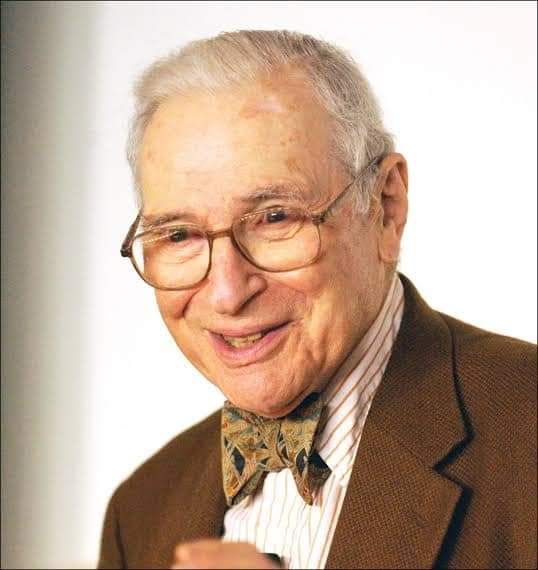
Arrow, Kenneth J.; Hurwicz, Leonid (1972), “Decision making under ignorance”, in Carter, C. F.; Ford, J. L. (eds.), Uncertainty and expectations in economics: essays in honour of G.L.S. Shackle, Oxford / New York: Basil Blackwell / Augustus M. Kelley.
Arrow, Kenneth J. (1974). The limits of organization. New York: Norton.
Arrow, Kenneth J. (February 1977). “Extended sympathy and the possibility of social choice”. American Economic Review. American Economic Association. 67 (1): 219–25.
Reprinted as: Arrow, Kenneth J. (1983a), “Extended sympathy and the possibility of social choice”, in Arrow, Kenneth J. (ed.), Collected papers of Kenneth J. Arrow, volume 1: social Choice and justice, Cambridge, Massachusetts: Belknap Press.
Arrow, Kenneth J.; Intriligator, Michael D.(1981). Handbook of mathematical economics. Handbook of Economics Series. Amsterdam New York, New York: Elsevier North-Holland.
Arrow, Kenneth J. Collected papers of Kenneth J. Arrow. Cambridge, Massachusetts: Harvard University Press.:
Arrow, Kenneth J. (1983a). Collected papers of Kenneth J. Arrow, volume 1: social Choice and justice. Cambridge, Massachusetts: Belknap Press.
Arrow, Kenneth J. (1983b). Collected papers of Kenneth J. Arrow, volume 2: general equilibrium. Cambridge, Massachusetts: Belknap Press.
Arrow, Kenneth J. (1984a). Collected papers of Kenneth J. Arrow, volume 3: individual choice under certainty and uncertainty. Cambridge, Massachusetts: Belknap Press.
Arrow, Kenneth J. (1984b). Collected papers of Kenneth J. Arrow, volume 4: the economics of information. Cambridge, Massachusetts: Belknap Press.
Arrow, Kenneth J. (1985a). Collected papers of Kenneth J. Arrow, volume 5: production and capital. Cambridge, Massachusetts: Belknap Press.
Arrow, Kenneth J. (1985b). Collected papers of Kenneth J. Arrow, volume 6: applied economics. Cambridge, Massachusetts: Belknap Press.
Arrow, Kenneth J. (1987), “Rationality of self and others in an economic system”, in Hogarth, Robin M.; Reder, Melvin W. (eds.), Rational choice: the contrast between economics and psychology, Chicago: The University of Chicago Press, pp. 201–16.
Arrow, Kenneth J.; Anderson, Philip W.; Pines, David, eds. (1988). The economy as an evolving complex system: the proceedings of the Evolutionary Paths of the Global Economy Workshop, held September, 1987 in Santa Fe, New Mexico. Redwood City, California: Addison-Wesley Pub. Co.
Arrow, Kenneth J.; Intriligator, Michael D.; Harberger, Arnold C.; Wolf, Jr., Charles; Tullock, Gordon (April 1993). “Economic integration and the future of the nation-state”. Contemporary Economic Policy. Wiley. 11 (2): 1–22.
Arrow, Kenneth J. (May 1994). “Methodological individualism and social knowledge (Richard T. Ely Lecture)” (PDF). American Economic Review. American Economic Association. 84 (2): 1–9.
Arrow, Kenneth J. (2008), “Arrow’s theorem”, in Durlauf, Steven N.; Blume, Lawrence E.(eds.), The new Palgrave dictionary of economics (8 volume set) (2nd ed.), Basingstoke, Hampshire New York: Palgrave Macmillan.
Also available online as: Arrow, Kenneth J. (2008). “Arrow’s theorem”. The New Palgrave Dictionary of Economics(2nd ed.). Palgrave Macmillan. pp. 241–245.
Arrow, Kenneth J. (2008), “Hotelling, Harold (1895–1973)”, in Durlauf, Steven N.; Blume, Lawrence E. (eds.), The new Palgrave dictionary of economics (8 volume set)(2nd ed.), Basingstoke, Hampshire New York: Palgrave Macmillan.
Also available online as: Arrow, Kenneth J. (2008). “Hotelling, Harold (1895–1973)”. The New Palgrave Dictionary of Economics (2nd ed.). Palgrave Macmillan. pp. 73–75.
Arrow, Kenneth J.; Debreu, Gérard (2001). Landmark papers in general equilibrium theory, social choice and welfare. Cheltenham, UK Northampton, Massachusetts, USA: Edward Elgar Publishing.
Arrow, Kenneth J. (June 2009). “Some developments in economic theory since 1940: an eyewitness account”. Annual Review of Economics. Wiley. 1: 1–16.
Arrow, Kenneth J.; Anderson, Philip W.; Pines, David (1988). The economy as an evolving complex system: the proceedings of the evolutionary paths of the global economy workshop, held September, 1987 in Santa Fe, New Mexico. Redwood City, California: Addison-Wesley Pub. Co.
Arrow, Kenneth J.; Bensoussan, Alain; Feng, Qi; Sethi, Suresh P. (2007). “Optimal Savings and the value of population”. PNAS. 104(47)

참고 = 위키백과
크리스천라이프 편집부
